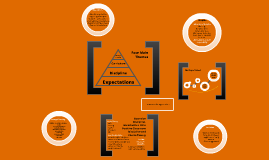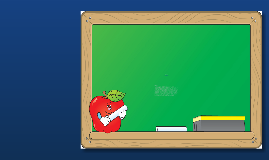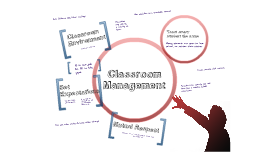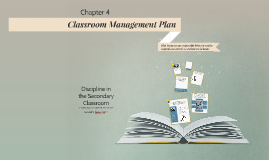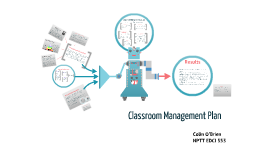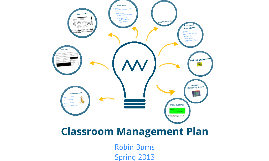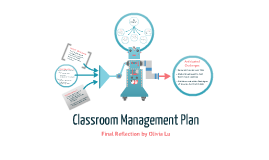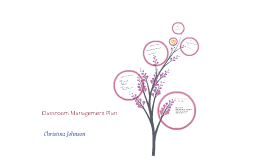Classroom Management Plan
Transcript: Lessons will incorporate elements and exercises that encourage the development of metacognition within students. Metacognition “refers to higher order thinking which involves active control over the cognitive processes engaged in learning” (Livingston, 1997, p.1), and helps students identify areas of weakness and become more independent as learners. Discipline is used to promote a healthy learning environment, not to punish students. From the first day of class, students will have clear expectations and firm boundaries. When expectations of behavior are not met, a student will face consequences that redirect behavior into positive outlets. Discipline issues will be treated separately from motivation issues: "a discipline problem exists whenever a behavior interferes with the teaching act, interferes with the rights of others to learn, is psychologically or physically unsafe, or destroys property" (Nolan & Levin, 2010, p.11). In general, rules will be strictly enforced to begin, and relax only as trust develops in the long-term. Small infractions will be addressed immediately to establish strong boundaries and high expectations. As much as is possible, behavior issues will be handled within the classroom. If a student presents behavioral problems that draw concern or are beyond my scope as a teacher, principals, counselors, or the student's parents will be consulted. The approach, especially with family, will be to assemble a team that can support the student, not punish them further. One aspect of classroom management and relationship building will be involvement with students beyond the classroom. This will mean attending sports events, concerts, and award ceremonies. I also intend to coach or advise student clubs if possible. I believe that students listen more and trust more when they know that their teachers are invested in them as a whole person, not just a student in one of their classes. Tone setting from every day of class will establish a friendly but serious atmosphere. Courage in answering questions and exploring ideas will be praised, and assertions will be challenged but not undermined. The concept of the Socratic Seminar will be introduced to all classes, and students will be asked to periodically host seminars for their peers. "The Socratic seminar is a formal discussion, based on a text, in which the leader asks open-ended questions. Within the context of the discussion, students listen closely to the comments of others, thinking critically for themselves, and articulate their own thoughts and their responses to the thoughts of others. They learn to work cooperatively and to question intelligently and civilly." (Elfie, 2002, 89) Each lesson will include elements of individual work, small group work, and large group work. Discussion on a given reading will begin with "pointing," an exercise in which new or interesting elements of a reading are "pointed out" to the class - these observations may be non-academic in nature at first, but will be explored academically as the class progresses. Each day, the class will be given a theme or concept to understand , and the lesson would work toward comprehension of that theme through discussion, written assignments, and activities. Every class will end with a brief reflection activity and every unit will end with a longer reflection. As time allows, reflections may range from a short writing prompt ("Write one thing you want to learn more about and one thing your learned") to a brief discussion between neighbors. Longer reflections will be written assignments in a personal narrative form that capture areas of growth after assignments. Reflections both strengthen student understanding and provide a window into the students comprehension to the teacher. Class starts when the bell rings and the warm-up activities begin. Assignments will be turned in at the start of class on the day they are due. Without an excused absence, they are late. Classroom materials will be shown the same respect as personal belongings. Any damaged items will be replaced Language in the classroom will be appropriate at all times. Inappropriate language, insults, homophobia, and racism will not be tolerated. Learning is a cooperative act - disruptions and distractions will not be permitted The Start of Class Approach to Discipline Teachers are most effective when they create an environment where learners are excited, self-motivated, and cooperative. As a teacher, I will frame the elements of discussion and pose questions that drive at a theme, but encourage students to explore concepts with each other. In this situation, the role of the teacher is to "allow learners to raise their own questions, generate their own hypotheses, and models as their possibilities, and test them for viability” (Fosnot, 1996, p.29). As we study literature we develop an understanding of the social, psychological, and political motivations for human behavior. We learn, through stories, what makes a person






